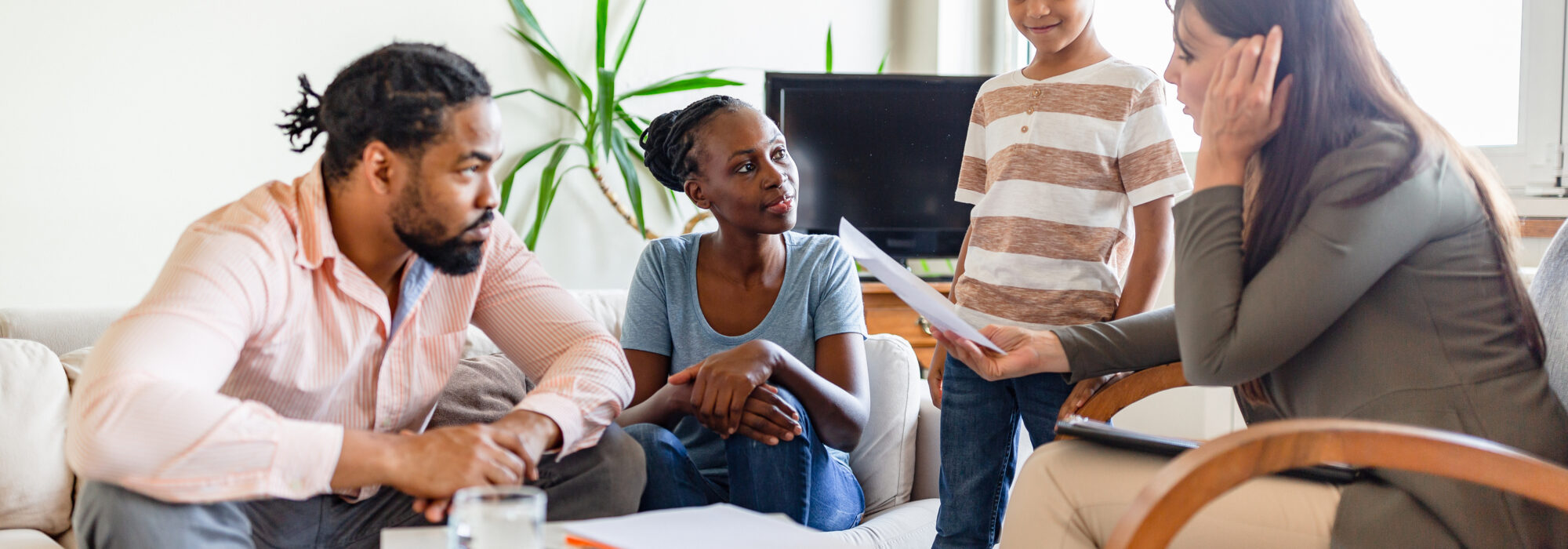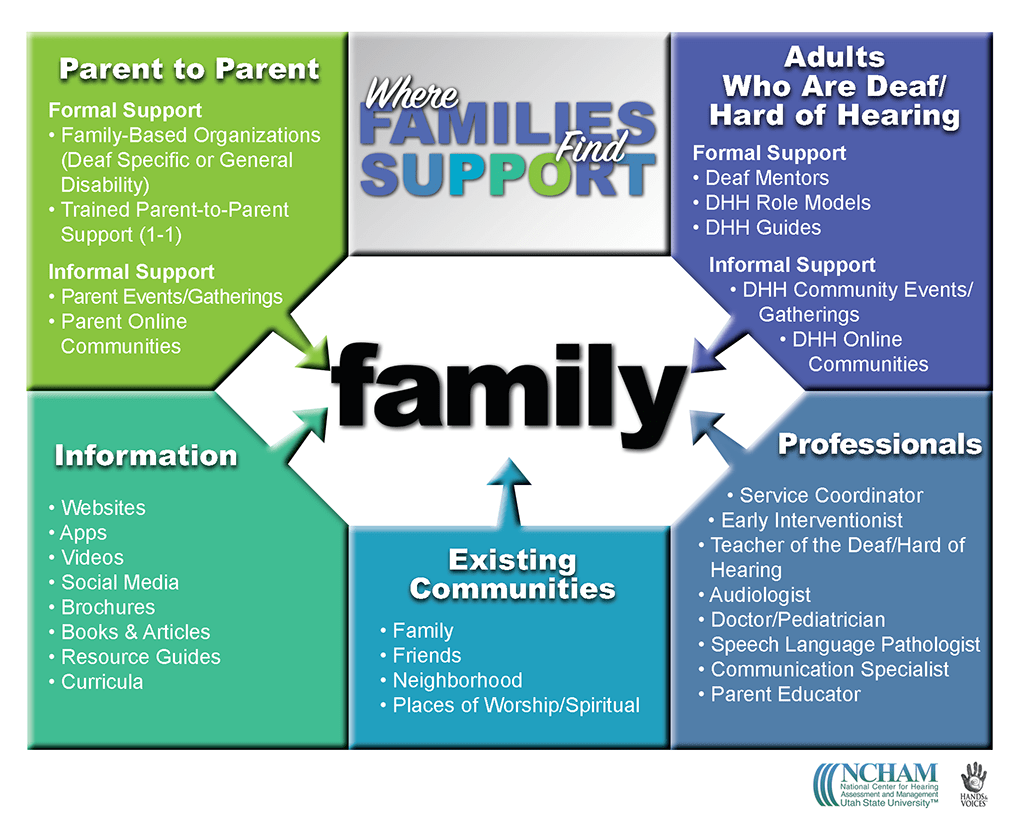
How to facilitate parent-to-parent support in a clinic-based setting
Interdisciplinary clinics are beginning to introduce clinic-based parent-to-parent support. Learn about the benefits of the ‘family consultant’ role.
For successful outcomes in children who have hearing loss, it is essential for families to receive effective support.
Outside from the support they receive from their hearing care professionals (HCPs), families can also get resources and support from parent-to-parent support.
In recent years, across the globe, interdisciplinary clinics have begun to utilize a clinic-based parent-to-parent support model. Sometimes known as ‘family consultants’ who are parents themselves, they serve in a non-medical role incorporated into the clinical setting to provide support to families.
Benefits of family consultant role
There are many benefits to including parent-to-parent support during a visit. For families, these include:
- Comfort and a sense of relief: Providing emotional support, a listening ear, empathy, and connection often provides relief for families who may be feeling alone or scared about what a diagnosis means and how it will impact family life.
- Connection to other resources: The family consultant can connect the parents to other parent organizations and events so families can meet other families.
- Viewpoints that are holistic: Families can get a more holistic sense of their child’s hearing loss beyond the medical implications.
- Access to positive role models: Being able to see healthy models of acceptance and joy, being able to ask questions about impact on siblings, school choices, and healthy social-emotional development are part of the parent-to-parent experience that is vital for families to make good, informed decisions for their child.

What makes a ‘family consultant’?
Family consultants are experienced parents, specifically trained to work in the clinical setting. They adhere to confidentiality ethics, ensure that no conflicting advice is given and never offer medical advice.
In some clinics, family consultants attend every appointment with the family during a clinic day, helping to take notes, writing down questions the family may have. Other models create a window of time for the consultant to sit down and meet directly with the family alone. Often, they will call family before the clinic appointment to introduce themselves and follow up after the appointment as well.
In general, they are seen and respected as a valuable member of the team, including renumeration for their time and expertise. This creates both accountability and sustainability since volunteer positions cannot always be relied upon. When funds are limited, family consultants often just see a family once, and when funding allows, a family consultant may be a regular member of staff.
| “Including family to family support has been invaluable to our team…Their time with families often primed families for difficult discussions by validating and providing context for the family’s experiences. This in turn created pathways for open communication and empowered families to engage in collaborative dialogue with the team in ways which effectively shifted the perceived power dynamic and allowed us to truly partner with families.” – Psychologist, Deborah Mood, PhD, Assistant Professor, University of Colorado Anschutz Clinic |
Insights from practicing family consultants
Rosabel (California U.S.A.) “There is something special about having parents connect with someone who has been in their shoes and who will help them as they navigate the journey from birth and beyond. This connection helps them understand that they are not alone.”
Daiva (Linz, Austria) “In parent peer work I see a connection and co-working between the parents and the professionals. Support at the beginning or much later, independent information, but also commitment to families are parts of this work. It is important that the parents’ voice is recognized as equal in the clinic, which brings benefits to both sides: parents and professionals.
Janet (Colorado, U.S.A.) “It has been a wonderful experience to be included in a team who has come to rely on my input throughout the day about how the family is doing, what questions they might be afraid to ask but were willing to ask me as ‘just another mom’ and to support the professionals’ recommendations in my conversations with the family.”
Imagine a world where the experiences of families could blend both the medical context and social/community contexts of the experiences of hearing loss as they move through the systems that support them. This can be done!
To learn more about parent to parent support, I invite you to read, Parent-to-Parent Support for Parents With Children Who Are Deaf or Hard of Hearing: A Conceptual Framework
Further resources:
